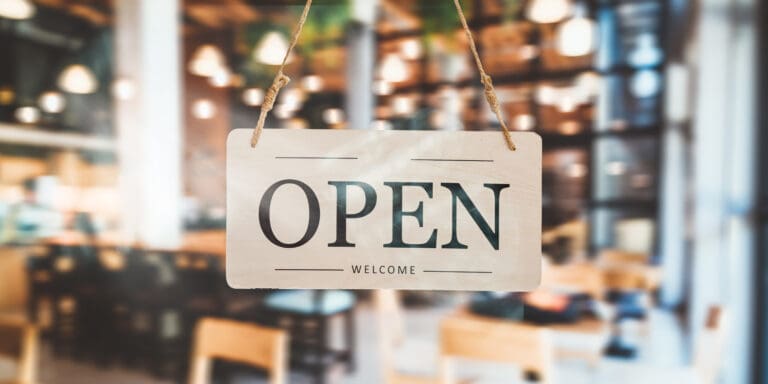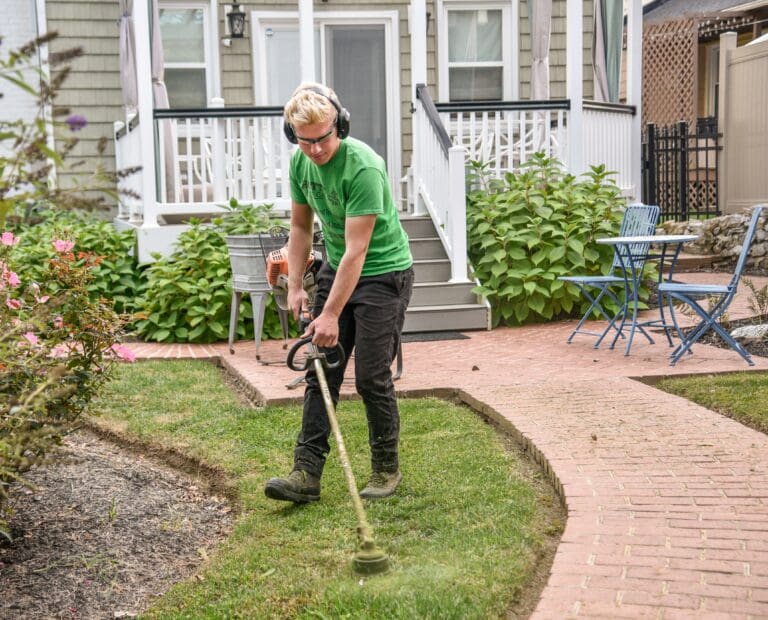For many small and mid-sized businesses (SMBs), a United States Small Business Administration (SBA) guaranteed loan can be the key that unlocks the next phase of their growth. But the SBA 7(a) loan is a more useful, flexible product than many realize – including seasoned brokers and other lending consultants.
In general, an SBA loan can be used for:
- Business acquisition/expansion
- Buy, build, refinance, improve owner-occupied (>51%) commercial real estate
- Buy machinery, equipment & inventory
- Refinance existing business debt
- Partner buyout or shareholder buyout
- Working capital
- Franchise acquisition
- Starting a business
You may already be aware of many of these uses, but we’ve put together a list of others that you might not come across every day, and some detail on why the SBA program is a strong choice in each. Unsure if your client’s needs might be met with an SBA 7(a) loan? Speak with a professional.
The loan to buy out a business partner or shareholder
For a business owner who’s exploring financing to buy out a business partner or shareholder, the SBA 7(a) loan is an excellent option. That’s because many SBA lenders will require little or no additional equity, and in some cases, will include costs of the loan closing into the loan balance. This enables the buyer to meet its goals with as little out of pocket as possible. This provides a smooth and straightforward transition that minimizes impact on liquidity, disruption to the business, and potential strain between the exiting ownership and the ownership that stays on. For this type of transaction, a traditional bank loan may be a possibility if the business meets their credit criteria, but some lenders are generally wary of buyout loans.
SBA loans that finance a change in business ownership are also available in smaller loan amounts. Many lenders do not have an appetite for these loans because for the same amount of work, they are less profitable than larger balance loans. The SBA has lending programs that are specifically designed to address these smaller borrowing needs.
Who’s looking for business partner buyout financing?
Many different types of small businesses come to a juncture where one or more owners want to buy out other ownership. Here are just a few common candidates:
- Insurance agencies
- Accounting firms
- Law firms
- Veterinary practices
- Medical practices
- Dental practices
- Various Corporations
- Various Partnerships
- Limited liability companies (LLCs and LLPs) across a range of industries
A word on LLC member buyouts: Of the more than 30% of US small businesses that are LLCs, the process of exiting as a member may be even more complex than for a shareholder in a corporation. The transfer of ownership comes with its own strict rules that vary from state to state when detailed change of ownership provisions in operating agreements aren’t already in place.
An experienced lender can work with an accountant, broker, or other lending consultant to leverage the SBA 7(a) loan in a way that takes the full buyout and complexities of the process into account. They’ll work with you to review all of the documents that you and your client will need for the transaction including a business plan, operating agreement or partnership buyout agreement, company and partner equity valuations, and they’ll work with you structure the transaction in a manner that’s agreeable to all parties. Moreover, they will give your clients the reassurance of knowing that they can maintain focus on their professional practice while you work with their lender to transition their business to a new future.
The best loans for small business acquisitions
On one hand, appetites remain high for the acquisition of small businesses that fared well despite the Covid-19 pandemic. On the other hand, shrewd entrepreneurs are also finding opportunities to invest in high potential businesses that took a hit in recent years. According to the BizBuySell Insight Report, which “tracks and analyzes business-for-sale transactions and sentiment of business owners, buyers, and brokers,” business-for-sale transactions rebounded in Q2 of 2022 to within a few percentage points of pre-pandemic (2019) numbers – even in an economy challenged by rising interest rates, supply chain disruptions, recession fears and other stressors.
The opportunity for business buyers is clear, but what might be less clear is the best strategy for financing the deal. An SBA loan can be a great answer, particularly for successful businesses that see the potential for growth through an acquisition. Once again here, the SBA loan offers a business buyer to complete the transaction with less out-of-pocket than would ordinarily be required by a traditional bank. Depending on various factors, little or no buyer equity injection might be required and closing cost may be able to be financed. Plus, the SBA loan is able to accommodate situations where the business Seller is willing to defer a portion of the purchase price over time (called “Seller Financing”), a fairly frequent characteristic in a business sale transaction. Loan advisors can work with their SBA lender to learn more about the benefits of an SBA loan for a business acquisition and what specifically an SBA lender will be looking for to get that loan approved and closed.
The loan to raise business capital
New business ventures of all shapes and sizes continue to fuel the US economy, and these “startups” are now being fueled by a wide variety of funding sources. According to a CB Insights report, startups raised $621B in 2021 in venture capital funding. This cycle continues to create opportunities for collaborators at various stages to benefit from their business vision. But venture capital usually comes at a fairly steep price, which may make an SBA loan an attractive alternative in some cases.
The SBA 7(a) loan can provide operating capital for startup businesses at competitive rates and on very favorable terms, particularly for business owners who have a history of successful entrepreneurship. Moreover, the flexible use of proceeds under the 7(a) program provides a reliable resource for businesses to meet a wide variety of their capital needs.
The loan to purchase a franchise
Let’s look at an example: Gas stations and convenience stores
Americans have always hit the road — even in more recent times when commuting to offices is less common. We run errands, take road trips, and rely on transport vehicles to deliver our goods at record speed. While what we put into our vehicles may be diversifying, the need to stop, fuel or charge up, purchase snacks and beverages, etc., is still here. In fact, according to IBISWorld’s reporting, the number of gas stations (some with and some without convenience stores) increased 0.9% between 2021 and 2022 with a total of 66,598 stations in the US today.
With highly competitive rates and terms, the SBA 7(a) loan fits the bill for many business owners financing franchised gas stations. And gas stations aren’t the only franchise an SBA loan can cover. Entrepreneurs are buying up FedEx franchises, food and fast food franchises, and others. Nerdwallet published a list of The 15 Best Franchise opportunities of 2022. In fact, the SBA reports that 10% of its total funding goes toward franchises. But its important that you do your homework when looking to buy a franchise. You’ll need to ensure that the franchise your client is looking to purchase or finance is included in the SBA’s directory of approved franchises and you’ll also need to review the SBA’s requirements for franchise lending. While an SBA lender may require only a 10% equity injection by a franchise acquirer, they will typically be looking for ownership to show some prior business success that will give the lender some comfort that the business is in good hands.
Franchise owners have the potential to leverage a 7(a) loan for the purpose of:
- Acquiring the franchise (franchise fees)
- Refinancing an existing loan
- Working capital
- Machinery and equipment
- Buying, building, renovating Commercial Real Estate used by the franchise
Less than perfect credit scores? Clients seeking an SBA loan to purchase a gas station or other franchise may choose to work with a “non-bank SBA lender” who offers solutions even to business owners with a lower credit scores. Non-bank SBA lenders are “story lenders”, that have some flexibility to listen to and digest circumstances that might be a non-starter for a traditional bank, and still fund a loan. In-house experts will review the details and can sometimes find a path to funding.
The loan to purchase commercial real estate
The space a small business occupies can impact its ability to grow and see healthy profits. While SBA loans can be used to buy, build, renovate and refinance, there are a couple of special scenarios in which owners would seek a loan to purchase commercial real estate: when they’re looking to expand their operations or they want to own the building they’ve been renting.
Many business owners who rent space don’t think they can own real estate because they will have to come up with too much cash to meet the equity injection requirements that banks typically have. In such instances a trusted consultant can help educate the borrower on the benefits of the SBA 7(a) program, where the loans can go as high as 100% of the purchase price. With little or no money down, the business can hold on to its cash and in some cases, may even enjoy monthly payments that rival the business’ current rental expense.
For a business, owning the real estate it uses also gives them the opportunity to refurbish the real estate to suit their needs and desires, without requiring their landlord’s consent. AND it diversifies their balance sheet with an asset that has historically offered the opportunity for significant value growth.
Some loan advisors may not be aware, that in addition to the more standard business uses like office space, industrial, retail, manufacturing, warehouse (all of which must generally be >51% occupied by the business borrowing), that SBA loans can also be made for the commercial real estate needs of other business, including:
- Hotels
- Gas Station/C-stores
- Healthcare facilities
- Daycare
- Car dealerships
- Auto repair
- Restaurants
- Car wash
- Self-storage
- Parking garages
- Special use properties
- Multi-use properties
Loan restructuring for payment relief
It’s not unusual for a small business to encounter lifecycle stages. One potential stage that presents unique challenges to borrowers and their advisors is when a business struggles. While a lender hopes that a business always has sufficient liquidity to weather a storm, when net revenue is reduced for a prolonged period of time, a business may begin struggling to make the monthly payments due on its existing loan.
One solution to this problem may be seeking a way to restructure existing financing to enable the borrower an opportunity to extend their payment obligations at lower monthly payment rates under new loan terms.
Many lending advisors will steer a borrower to the SBA program to get this much-needed relief. The SBA’s unusually long loan terms and amortizations (10-25 years) can reduce monthly loan payments to a level that will enable the borrower to stay current and weather the storm. Especially on short term loans in our rising rate environment, borrowers may want to consider converting that financing to a longer-term SBA loan to take the pressure off until the economic climate settles down.
While not all lenders will entertain a restructuring, most lending advisors know that the best chance for success here is for a borrower to address the problem before the loan technically is declared to be “in default”, at which point the conversation frequently becomes less amicable.
USDA Business and Industry (B&I) loans
Although the SBA 7(a) program offers financing solutions for a very wide variety of businesses and a wide variety of their borrowing needs, not every business borrowing opportunity is a fit for the program. Fortunately, there’s another government-guaranteed loan program that fills the gap for many similar financing needs: the US Department of Agriculture (USDA) Business & Industry Loan (B&I) Guarantee program. USDA B&I loans can be used in conjunction with an SBA loan – or on their own – to help rural business owners with a variety of their business operating and commercial real estate needs.
Who exactly does the USDA B&I loan serve?
The USDA B&I loan program serves business owners in rural areas (cities or towns with populations 50K or fewer inhabitants). These rural areas actually make up over 97% of the United States! It’s an excellent potential solution for owners who may not seek financing through the SBA programs, either because their business does not meet one of the SBA’s criteria for borrowing or because the USDA B&I program can deliver the business more attractive terms on its own. For example, the USDA B&I program can finance loans of larger sizes than the SBA 7(a) program. In addition, some borrowers may look to finance their needs with a USDA B&I loan either because they have already reached the SBA’s borrowing limits or because they want strategically to preserve their SBA borrowing eligibility for future needs in non-rural areas.
Is it difficult to get a USDA B&I loan?
For a lending consultant who is familiar with the SBA 7(a) lending process, the steps for obtaining a client’s USDA B&I loan will look awfully familiar. The key for lending consultants is to identify a lending partner that knows the process and is licensed to service these loans and can help them understand these side-by-side programs to make a decision as to which program or combination suits their business best.
Can you use an SBA loan for…?
We’ve only just cracked the surface of SBA loan uses. When you have a financing need that presents a challenge, the best approach is always to talk with an expert about your client’s needs – no matter how challenging.
Meet SBA Preferred Lender Ready Capital
Ready Capital (ReadyCap Lending LLC) is an SBA Preferred Lender and one of the top 10 lenders in the U.S. in the SBA’s small business lending program in 2022. Our lending experts across the country know about the many uses and nuances of SBA loans because we earned our way onto this “Best Of” list, one deal and one satisfied business owner at a time. And as a national non-bank lender, we have had the pleasure of meeting some of the more unique, challenging needs of small and mid-sized businesses in all 50 states – even ones that other SBA lenders were unable to solve. Whether you are a broker, financial advisor, or consultant to small businesses, we would love to hear from you to tell you more about our program and our process and see where we might specifically help you help your customers.
Learn more about our small business loan program
And if you’re ready to discuss a specific borrowing need or would like a quote, just fill out our short financing questionnaire, and a seasoned member of our lending team will promptly reach out to you for a no-obligations introduction call to get the ball rolling.






